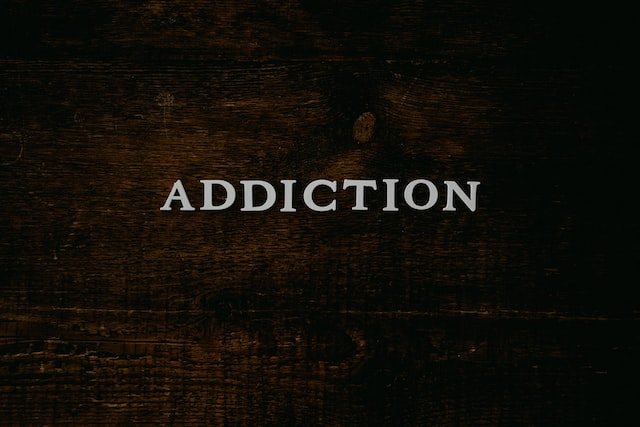Picture from Unsplash
Alcoholism is a destructive and widespread disease that can have devastating effects on individuals across the globe. It manifests in an overwhelming craving for alcohol, often disregarding essential duties and pursuits for drinking instead.
Unchecked alcoholism has severe consequences, such as intense physical health issues, severed relationships, and financial instability. The following are various signs of an unhealthy relationship with alcohol and a potential sign of alcoholism:
1. Exceeding Your Predetermined Limits on Drinking Frequency and Duration
Excessively consuming alcohol can be a huge sign of alcohol addiction. Exceeding the predetermined limits on the frequency and duration of your drinking indicates that you may be battling an addiction that requires immediate attention.
It is important to recognize this behavior, as it can seriously affect physical health, mental well-being, relationships with family and friends, and financial security. If you are worried about your drinking, or the drinking of someone close to you, seeking help right away is essential to ensure everyone’s safety and well-being.
2. Experiencing Strong Cravings or Urges To Drink
When someone has strong cravings and urges to drink alcohol, it is a clear sign that they are dealing with an addiction. The drive to drink can become so powerful that it overwhelms any other thought or feeling the person may be experiencing.
Alcohol addiction can interfere with someone’s ability to make decisions, their relationships, and their overall health. That’s why it’s important to treat the condition of alcoholism as soon as possible to prevent further damage and pain for those who experience it.
3. Battling the Desire To Reduce or Stop Alcohol Consumption
Alcohol addiction can be a debilitating cycle. Despite devising and implementing successful strategies to reduce or stop drinking, many find that they ultimately feel powerless to break free from their addiction. It can lead an individual to a feeling of despair, prompting them to drink more as a means of escaping the reality of their situation.
It is important for those struggling with alcohol addiction to recognize that it might take time and concerted effort with outside help to achieve the desired outcome of sobriety. There is hope, and no person should feel alone in this battle against their demons.
4. Spending a Significant Amount of Time Drinking
Alcohol addiction is a serious issue that affects many lives. One common sign that someone may be struggling with this condition is spending time drinking or recovering from the use of alcohol. Such significant time spent engaging in either activity can harm physical and mental health, leading to workplace problems and issues.
Furthermore, it can interfere with activities the person used to find enjoyable or meaningful, such as hobbies and friendships. Early recognition of these signs could help the addicts access the help they need to battle addiction before it escalates further.
5. Continuing To Drink Despite Negative Consequences
When someone continues to drink despite negative consequences, this is a clear sign of alcohol addiction. It could include negative impacts on health, relationships, and finances. Additionally, it could involve legal consequences such as arrests or interactions with law enforcement due to drinking-related activities. Recognizing this behavior is important, as it could be the first step to getting help for someone who needs it and may not know where to turn.
6. Experiencing Withdrawal Symptoms When Not Drinking
When someone struggling with an alcohol addiction quits drinking, they may experience uncomfortable withdrawal symptoms such as tremors, anxiety attacks, or bouts of irritability. These signs and symptoms can range from mild to severe, depending on the severity of the addiction. It is important for those experiencing these withdrawal symptoms to seek professional help to manage them and stay safe throughout their recovery journey.
It’s advisable to seek alcohol medication treatment from reputable rehabilitation centers to ensure a swift and successful recovery. With the right support, those dealing with alcohol addiction can learn how to manage their cravings and urges responsibly. These centers offer individualized treatment plans and FDA -approved medications to reduce or stop alcohol consumption.
Besides, they collaborate with individuals to identify underlying causes that can trigger the cravings, helping them make positive life changes. The professionals work with other healthcare providers to ensure that the individual receives comprehensive care and support throughout their recovery process.
7. Neglecting Important Responsibilities or Activities in Favor of Drinking
If drinking has taken precedence over necessary obligations, like work or family time, this could indicate an alcohol problem. The individual may feel compelled to drink to escape reality, even at the expense of taking care of important responsibilities. It indicates that the person is struggling with an addiction and needs help to address it.
Alcoholism is a complex condition that can have a detrimental effect on one’s life. Recognizing the signs and symptoms of alcohol addiction is essential to access the help one needs to battle this condition and reach a point of sobriety. There are many resources available for addicts, but it is also important to note that recovery is a process and does not have a one-size fits all approach.


